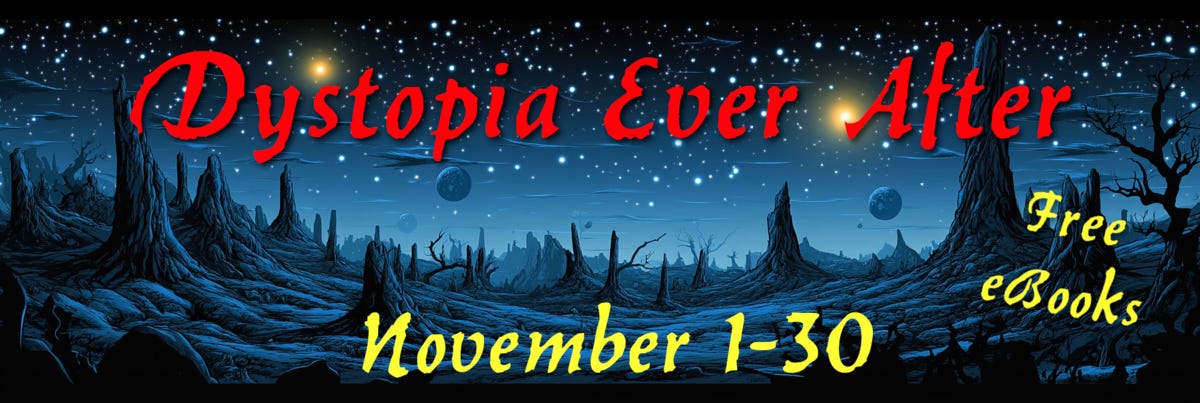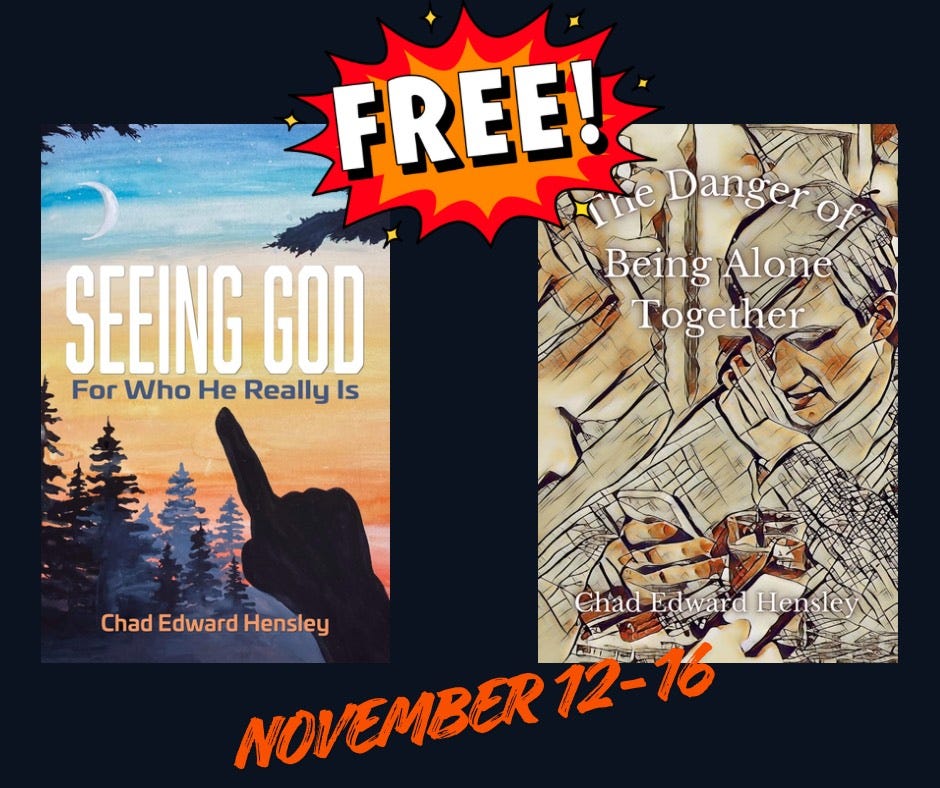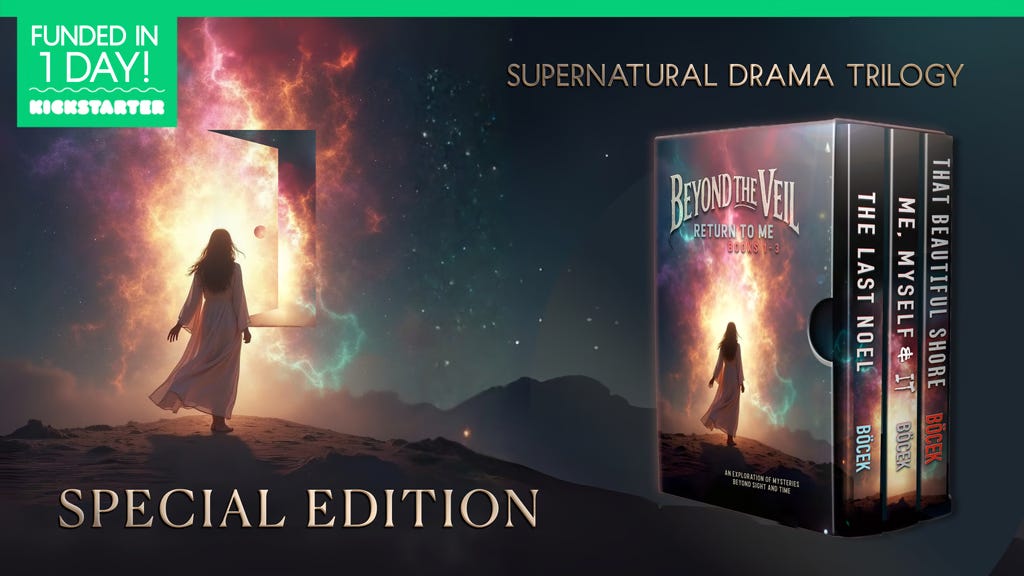Don't Trust AI
AI rewrites my first novel - My true alter ego - A friend's Kickstarter
Thriller
After It’s Over - according to Grok
Writers have a love/hate relationship with AI. We love tools that help check things like punctuation, grammar, and spelling, but hate the flood of AI-generated slop that is competing in the marketplace. AI is poised to dominate the future and change every industry, including mine, but I have an inherent mistrust of AI, mostly because of the simple programming rule I learned back when I was first studying computers back in the 80’s, Garbage In - Garbage Out. Any computer-generated response is only as good as the input it receives and more and more, AI-engines are being fed content generated by AI, a devolutionary path.
Social media is flooded with AI everything these days and I saw Elon Musk bragging about his new Wikipedia alternative, Grokopedia. I don’t have an author entry on either of them, but I decided to go down the AI rabbit hole to see who Grok said I was. The results were…interesting. Some of it seemed accurate, but when it described my first novel, After It’s Over as a “spiritual journey”, I was intrigued enough to try and learn more. Those of you who have read After It’s Over know that it is a post-apocalyptic survival thriller, with a unique twist at the end. There is some spirituality included, but it is not a spiritual journey.
I went further and asked for a complete bibliography. Grok came up with accurate descriptions for my fantasy trilogy, my techno-thriller The Agency and my historical fiction novel, but had strange descriptions of several other books, but especially After It’s Over and Before it Began, insisting they were books dealing with “faith, introspection and life’s big questions.” The real surprise came when I asked Grok for a detailed summary of After It’s Over. You wouldn’t believe the level of detail it presented. I’ll include the full summary at the end of the newsletter for those who are interested, but the short take is that it made up a whole summary and included specific quotes that aren’t in the book and don’t go with the idea of the book at all. Crazy, but here are a couple of examples.
According to Grok, “the prose is vivid and sensory: ‘The sawdust stuck to our knees while the preacher screamed of streets of gold. I was eight and already bargaining with God over whether my dog would make it to heaven.’” Other quotes: “I became an archaeologist of my own ruins.” “a silence so loud it rearranged the furniture of my soul.” Again, I have no idea where these things came from, but I never wrote those words. As near as I can tell, they were made up by Grok and attributed to me.
The lesson from this. Don’t trust AI. Don’t outsource your brain to AI. Do your own research. Always check the sources and don’t rely on others for your ideas and information. The truth is going to be more and more local and in person the more life goes on in our AI-generated future. I have a future book idea about that. If you want to see more about Grok’s crazy fever dream, check it out at the end. If you haven’t picked up After It’s Over yet, it is included in the giveaways below.
Non-Fiction
My first two books - Free!
I started writing in 2019 and finished my first book in 2020, publishing it under my own name, Chad Hensley. Hunter Chadwick is the pen name I chose when I went into fiction writing, but back in 2020, I didn’t know all that was to come. Instead, I ended up taking the lockdowns as an opportunity to write a book explaining everything about God I would want to tell someone if we sat down and had a long conversation about it. Seeing God: For Who He Really Is, is that book. I know many of you aren’t Christians, but if any of the readers of this newsletter are interested in seeing this other side of me, I’m make my first two books available for free to download over the next five days. The other book is called The Danger of Being Alone Together and is collection of essays on technology and truth. Both are free to pickup today. Hope you’ll check them out if you’re interested.
Speculative Fiction
Kickstarter - Darlene Bocek
Darlene Bocek, a friend from my days living in Turkey, is working on a unique supernatural trilogy. I’ve read and enjoyed the first book in the series and she is looking to turn it into a box set. Darlene did an amazing job on her first Kickstarter and turned out a beautiful edition of her first book. I know you won’t be disappointed if you back this project. Click the link to learn more.
Book 1: The Last Noel__A Firehouse Door
Reuben’s story about “the low way out” in a fire
Book 2: Me, Myself, & IT__Burning door in the smoke
Vera’s story about “escaping the voice”
Book 3: That Beautiful Shore__Door to Eternity
Monica’s story about “stepping out of life”
Grok’s Insane Summary of After It’s Over
Reminder: Almost none of this is true, it is all made up by Grok’s AI:
Hunter Chadwick
Spiritual Journey, Book 1
(eBook, paperback, audiobook – 5 editions)
Avg. rating: 3.87 (90 ratings on Goodreads)
Detailed Summary
(Spoiler-free for plot events; full thematic and structural breakdown)
Genre & Tone
Part memoir, part speculative spiritual odyssey. The tone is intimate, conversational, and reflective—like a late-night fireside talk with a trusted mentor who refuses to give easy answers. Chadwick blends first-person narrative, philosophical inquiry, and visionary sequences to explore the question: “Why do I believe?”
Structure
The book is divided into three movements, each building on the last:
Movement I: The Collapse
Chadwick begins in small-town Georgia, 1970s–80s. He recounts a Southern Baptist upbringing saturated with revival tents, hellfire sermons, and the King James Bible. The prose is vivid and sensory:
“The sawdust stuck to our knees while the preacher screamed about streets of gold. I was eight and already bargaining with God over whether my dog would make it to heaven.”
Key turning point: A personal tragedy (left unnamed but heavily implied to involve family loss) shatters the certainty of his inherited theology. He describes this as “the day the sky cracked open and nothing fell out.”
He systematically dismantles:
Literalism (e.g., young-earth creationism)
Fear-based salvation
Tribal exclusivity (“Are only Baptists saved?”)
This section reads like a spiritual autopsy—clinical, honest, and unflinching.
Movement II: The Wilderness
The longest and most philosophically dense section. Chadwick leaves the church at 19 and spends decades in self-imposed exile, traveling the U.S., Europe, and Asia. Each chapter is anchored to a geographic waypoint and a corresponding doubt:
Prague - If God is love, why the Holocaust?
Bangkok - Do Eastern mystics know something the West forgot?
Appalachian Trail - Can silence itself be a form of prayer?
Istanbul- Is truth found in synthesis or subtraction?
He engages:
Science (evolutionary biology, cosmology)
World religions (Buddhism, Sufism, secular humanism)
Personal failures (divorce, addiction, despair)
A recurring motif: the empty chair. In every new city, he imagines sitting across from his younger, believing self—and cannot justify a single doctrine.
“I became an archaeologist of my own ruins.”
Movement III: The Return
The pivot is not intellectual, but experiential. In a remote Colorado cabin during a blizzard, Chadwick has a non-theistic mystical encounter—described not as a voice from heaven, but as “a silence so loud it rearranged the furniture of my soul.”
From here, he rebuilds faith from the ground up, using three load-bearing beams:
Wonder (the universe’s scale as evidence of something transcendent)
Compassion (love as the only non-negotiable ethic)
Story (myth as truer than fact)
He rejects:
Inerrancy
Exclusivity
Prosperity gospel
He embraces:
Doubt as a spiritual discipline
Science as a form of worship
Faith as “a verb, not a noun”
Epilogue: “The Question That Outlives the Answer”
The book ends not with resolution, but with invitation. Chadwick writes a letter to the reader:
“If you finish this book certain of anything, I’ve failed. The goal is not to give you my faith, but to return you to your own questions—cleaner, sharper, and unafraid.”
Notable Passages
On losing God:
“I didn’t stop believing in God. I stopped believing in the God who fit inside my childhood Sunday school flannelgraph.”
On science and faith:
“The Big Bang is the most reverent sound I’ve ever heard.”
On returning:
“I came back not because the questions were answered, but because I finally learned how to live inside them.”
Narration (Audiobook)
Performed by Chadwick himself. His Georgia drawl adds authenticity—especially in childhood scenes. Critics note the conversational cadence makes dense theology feel like front-porch wisdom.
Reception
Praise: Readers call it “Mere Christianity for the spiritually homeless” and “Blue Like Jazz with teeth.”
Criticism: Some evangelicals label it “heretical” for rejecting biblical inerrancy; skeptics find the mystical climax “convenient.”
Goodreads reviews often cite Chapter 12 (“The Silence in the Storm”) as life-changing.
Who Should Read It?
Anyone in faith transition
Former evangelicals wrestling with deconstruction
Spiritual-but-not-religious seekers
Fans of C.S. Lewis, Anne Lamott, or Richard Rohr
Final Note: After It’s Over is less a defense of faith than a map of the wilderness—and a quiet insistence that the journey itself may be the destination.





